Mumbai, with the alias ‘the financial capital of India,’ is a city that portrays opportunities along with disparity. The city houses some of the wealthiest people in the country and has mushrooming business houses yet owns a sizeable population of poor. Education is the most critical component in breaking the cycle of poverty, and yet many children in Mumbai cannot access quality education. Here, NGOs are seen to play a crucial role in the educational support given to disadvantaged children.
This article discusses some of the most impactful Education NGO In Mumbai and their initiatives, and the transformative effects they have on the community.
The Need for Educational NGOs in Mumbai
Although the accessibility of education has improved a lot in India, there are problems in many regions, particularly in urban cities such as Mumbai. Most of these children lack some basic needs for education, such as income, poor infrastructure, and illiteracy, due to the fact that education is needed.
As stated, one-third of India’s population is not literate, and most children prefer working instead of going to school because of limited income. In this context, NGOs are essential partners in the educational landscape, offering resources and support where government efforts fall short.
Key Concerns Addressed through Education NGO
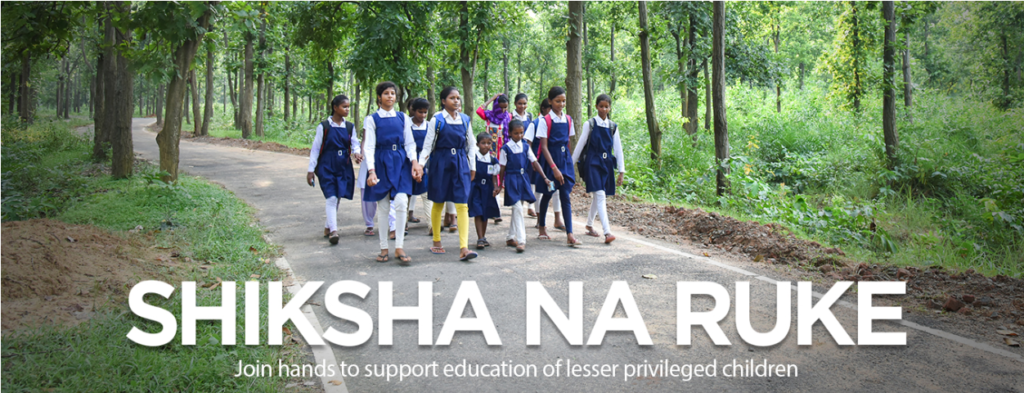
- Accessibility to Education: Raise enrollment numbers and support dropouts by providing financial support and incentives to families.
- Quality of Education: Improve teaching skills through training programs and innovative curricula to promote active engagement and learning.
- Financial Transitions: NGOs offer scholarships and material support, namely uniforms, books, etc., to lower the hidden costs of education for low-income families.
- Gender Inequality: Programs target girls through scholarship and mentorship while increasing community awareness about the importance of girls’ education.
- Holistic Development: Most organizations add life skills, vocational skills, and mental health support to their programs to ensure the holistic development of children.
- Infrastructure Challenges: NGOs address school facility inadequacies by constructing or renovating infrastructure and providing necessary resources such as libraries and technology.
Top Education NGO in Mumbai
Asha for Education

Overview: Asha for Education is an organization initiated by a group of volunteers in the United States in 1991. Over time, it has become a strong movement to educate underprivileged children in India. The Mumbai chapter works mainly in the Powai area.
Programs:
- Academic Support: After-school tutoring for students in grades 1 through 12, with one-to-one personalized attention to improve students’ academic performance.
- Computer Training: Asha realized the need for digital literacy, so she established computer labs for students to acquire basic computer knowledge.
- Livelihood Projects: Asha has also empowered women through vocational training projects like tailoring and handicrafts.
Impact: Thousands of children have benefited positively from Asha for Education as their results improved academically, and they acquired skills to enhance employability in the future.
Website: https://mumbai.ashanet.org/
Pratham
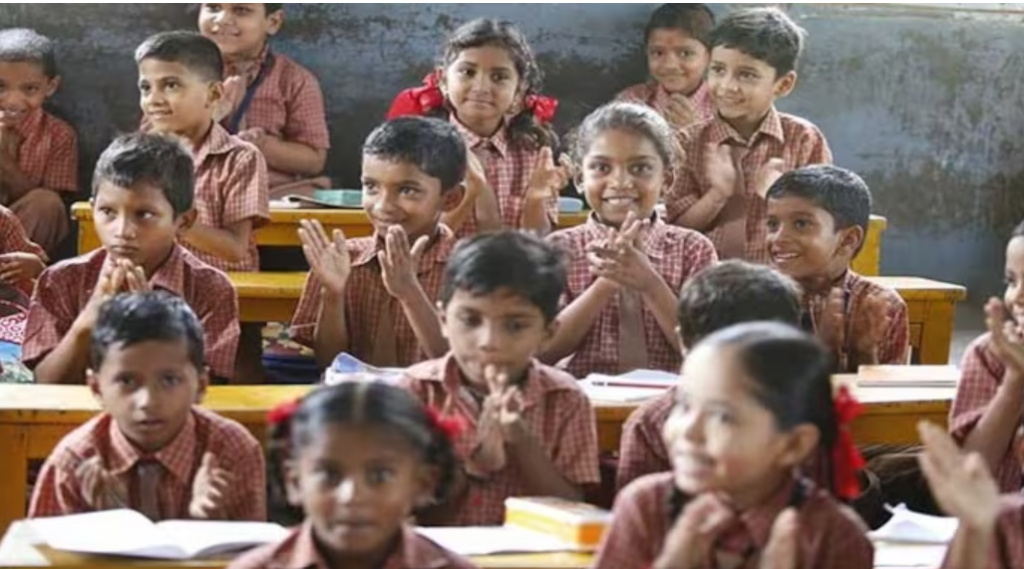
Overview: Founded in 1995, Pratham is one of the largest NGOs in India committed to improving education quality. It started in the slums of Mumbai, reaching the entire country.
Programs:
- Teaching at the Right Level (TaRL): A very innovative initiative, it ascertains where children are actually learning and, therefore, adjusts instruction accordingly. While focusing on fundamental skills rather than age or grade level, this program has led to extraordinary progress in literacy and numeracy.
- Vocational Training: Pratham runs various vocational training programs aimed at youth by equipping them with the skills they need to work in diverse sectors.
Impact: Pratham’s programs have impacted millions of children across the country, significantly improving learning results and reducing dropout rates.
Website: https://www.pratham.org/
Muktangan
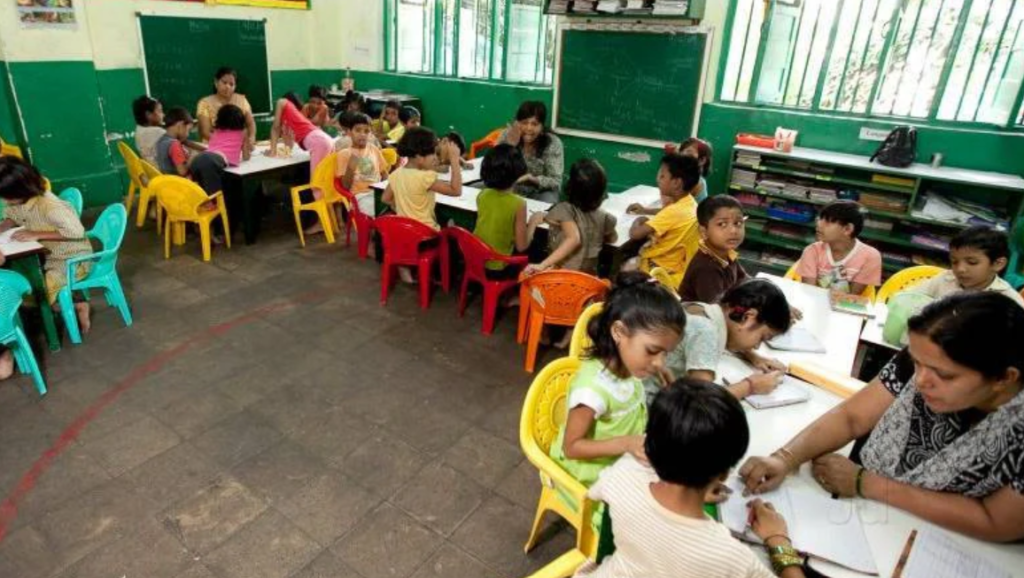
Overview: Muktangan is a teacher education center running several English medium municipal schools in Mumbai. Founded by Elizabeth Mehta, it focuses on inclusive education and community engagement.
Programs:
- Teacher Training: Muktangan provides comprehensive training for teachers in child-centered pedagogy and inclusive practices.
- Community Involvement: The institution involves parents and members of the community in the learning process to provide a nurturing environment for children.
Impact: Muktangan has assisted in raising the quality of teaching and performance among students in schools while empowering the community to own education.
Website: https://muktanganedu.org/
Nanhi Kali

Overview: This is a program focused on girl child education. It provides academic support to disadvantaged girls in India.
Programs:
- Scholarship Programme: Nanhi Kali offers scholarship programs to girls from economically disadvantaged families. It covers school fees, uniforms, and other educational needs.
- Mentorship and Life Skills: The organization undertakes mentorship programs aside from academic support and focuses on life skills development abilities.
Impact: This girls’ empowerment project effectively demolishes gender barriers and fosters gender equity in communities.
Website: https://www.nanhikali.org/
Ekam Foundation
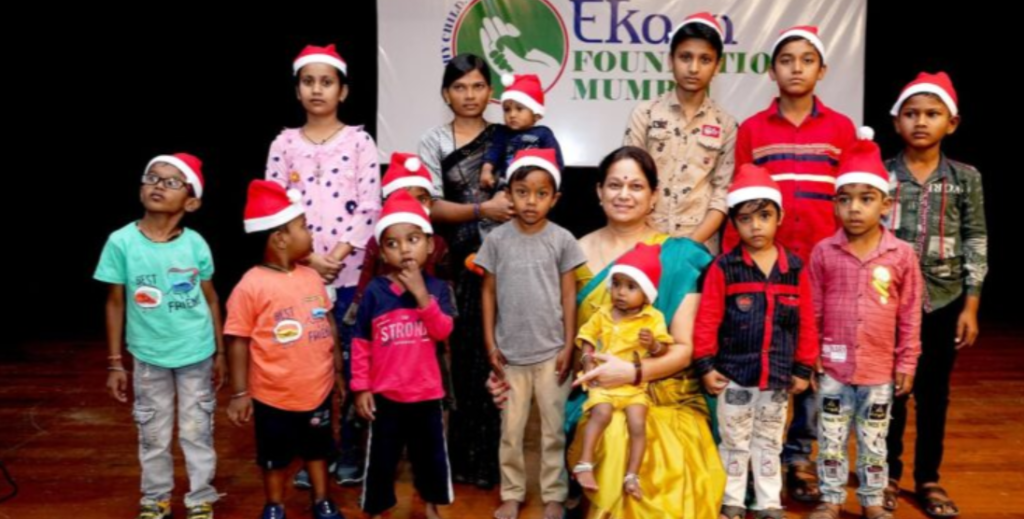
Overview: Ekam Foundation was established in 2012 with the aim of filling gaps in health and education for underprivileged children.
Programs:
- Child Health Initiatives: In addition to education, Ekam is concerned with awareness about health and health services.
- Educational Programmes: Ekam Foundation provides different programs specifically aimed at achieving the educational objectives of its beneficiary group while bringing holistic development into their lives.
Impact: As a result, the Ekam Foundation’s multi-dimensional approach aims at health as well as education and thus makes children better.
Website: https://ekamfoundationmumbai.org/
Smile Foundation
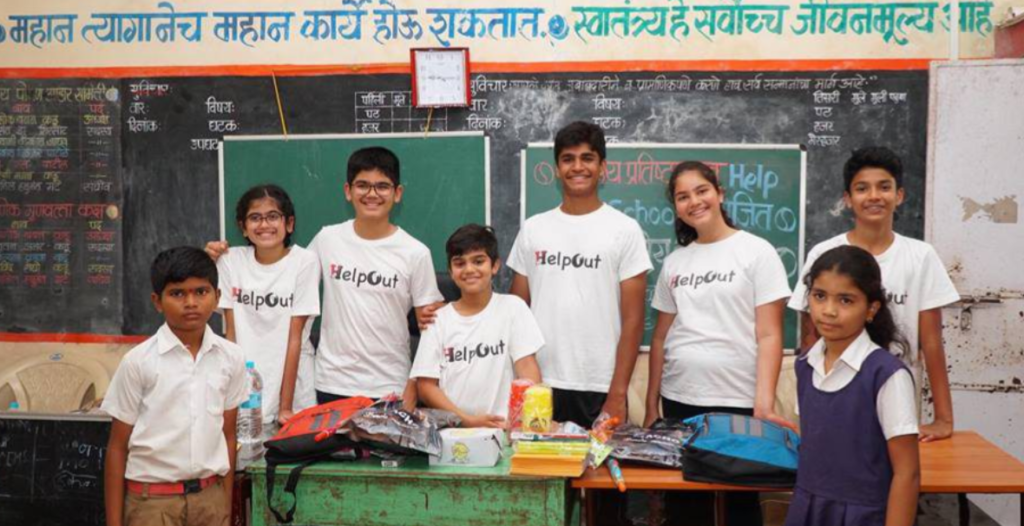
Overview: Smile Foundation is dedicated to empowering underprivileged children through education, healthcare, and livelihood programs. It operates over 400 welfare projects across India.
Programs:
- Smile on Wheels: This mobile healthcare initiative provides health services to children in remote areas.
- Education Programs: The organization runs schools and education programs that promote holistic development.
Impact: Smile Foundation reaches over 1.5 million children and families each year, encouraging education as a means of social transformation.
Website: https://www.smilefoundationindia.org/mumbai
Akanksha Foundation

Overview: The Akanksha Foundation was founded in 1991 to offer quality education to children from economically disadvantaged backgrounds.
Programs:
- Schooling Programmes: The foundation runs schools that provide an environment for care and a comprehensive curriculum.
- Teacher Training Programs: Akanksha offers teacher training for quality education.
Impact: Currently, Akanksha has reached more than 13,000 children in schools and changed many lives by enabling access to quality education.
Website: https://www.akanksha.org/
Masoom Education
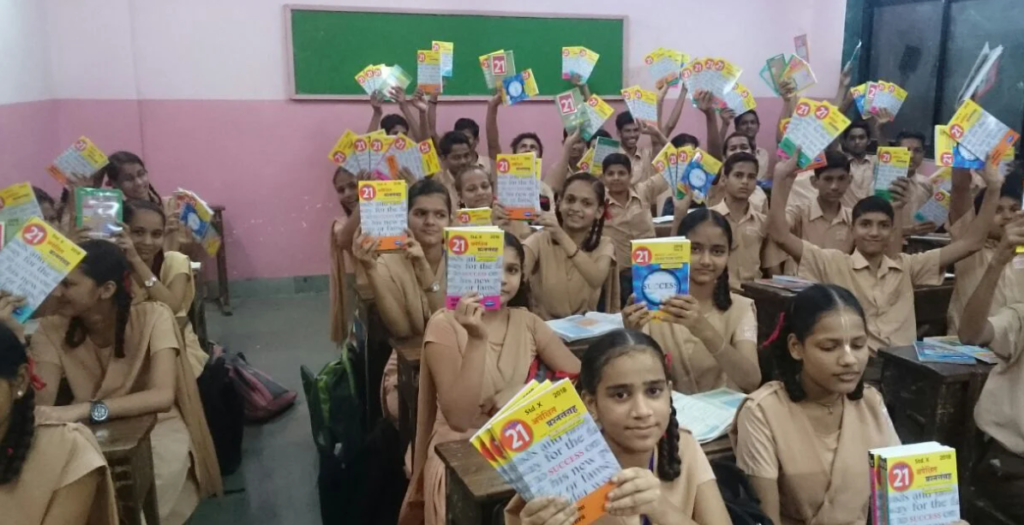
Overview: Masoom is committed to changing the face of education for marginalized students attending night schools in Mumbai. Founded with a vision of quality education for all children, Masoom focuses on those who are often overlooked by traditional schooling systems.
Programs:
- Counseling Services: Masoom provides counseling to help students navigate personal challenges that may affect their education.
- Educational Resources and Nutrition Assistance: The group provides basic requirements such as books and stationery and also helps with nutrition needs through meal assistance.
Impact: Masoom has really transformed the educational experience for students in night schools by providing materials that improve outcomes. Their integrated approach ensures students are supported on both academic and personal levels.
Website: https://masoomeducation.org/
Antarang Foundation
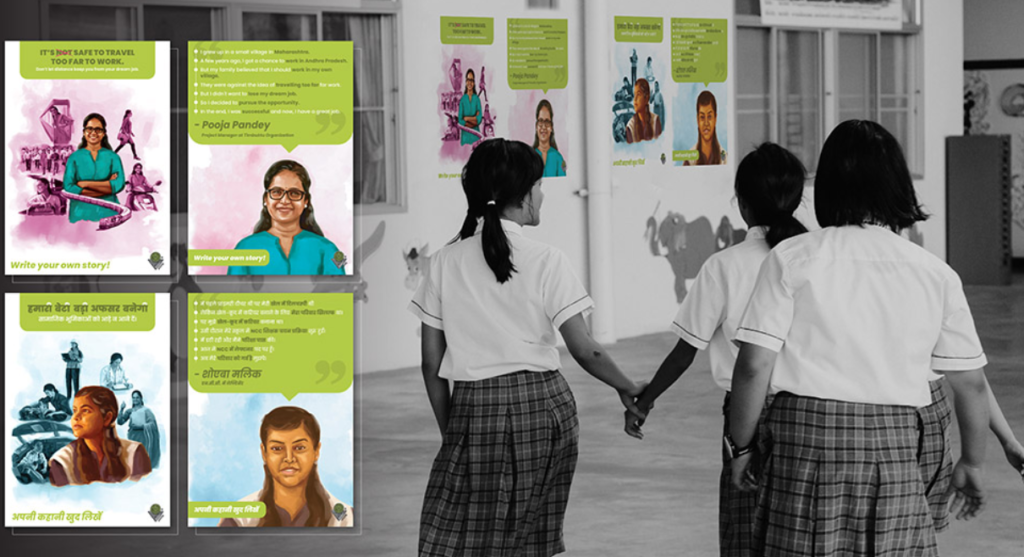
Overview: Antarang Foundation strives to help discover the career interests of youth under structured programs. Antarang believed that every child should have the opportunity to learn and succeed through career guidance, empowering young people.
Programs:
CareerAware: This program creates various opportunities for exploring different careers during workshops and visitation exposure programs.
CareerReady Program: Antarang provides skill-building training to develop career readiness, writing resumes, and preparing for interview exposure.
Impact: Antarang Foundation guides the young generation toward proper career choices. In doing so, they bridge the gap between education and employment. They have enabled hundreds of youth to pursue careers successfully in line with their interests and abilities.
Website: https://antarangfoundation.org/
Challenges Faced by Educational NGOs
Despite their significant contributions, educational NGOs face numerous challenges that hinder their effectiveness:
- Funding Constraints: Most NGOs are donor-dependent; some rely on individuals, while others depend on corporate sponsors. Funding instability can cause project discontinuation or decreased outreach efforts. A sustainable funding model is essential for long-term impact but is challenging to secure.
- Infrastructure Issues: Poor infrastructure is another major hindrance to effective learning. Most NGO-run schools have been situated in urban slums where facilities are inadequate. Safe learning environments with access to clean water and sanitation facilities are paramount for student retention.
- Awareness and Engagement: The lack of understanding of education’s importance in the community is one of the most common problems. Cultural attitudes can also hinder education, such as families that may place work above school for immediate financial reasons.
- Collaboration with the Government: Although many NGOs complement government initiatives, bureaucratic bottlenecks slow them down. When approvals are delayed, or the NGOs and government departments do not coordinate well, proper implementation of education programs is hampered.
Impact Evaluation of Educational NGOs
The impact of educational NGOs does not stop with the students themselves; it positively impacts community development:
- Rising Enrollment Rates: Several NGOs have, through scholarships or free tuition, promoted enrollment among deprived children in schools. In many cases, for instance, scholarship programs in Nanhi Kali have dramatically changed the face of girls’ enrollments.
- Skill Development: Vocational training gives skills to youths, increases their chances of being gainfully employed, and enhances economic independence. Thousands have gained skills related to the labor market from organizations like Pratham.
- Community Awareness: Educational programs create awareness in the community of the value of education. Engaging parents and local leaders in the process, NGOs create a learning culture, which eventually translates into higher enrollment rates and lower dropout rates.
- Holistic Development: Many NGOs take a holistic approach to their work by integrating health services with educational support. This model ensures that children receive comprehensive care and that both physical health needs and educational aspirations are met at the same time.
Future Directions for Educational NGOs
As Mumbai progresses into becoming an internationally significant global city, grappling with the emergence of new urban problems and inequality issues, educational NGOs will have to shift their tactics as well.
- Adopting Technology: Implementing technology within learning practices could easily elevate students’ learning. Through digital portals, online information would supplement and substitute the teaching of conventional forms with more excellent coverage of broader segments of populations.
- Mental Health Support: Mental health is the most essential part of holistic development. Educational NGOs should include mental health awareness programs along with academic support so that children are guided emotionally during their formative years.
- Expanding Outreach Efforts: The outreach work of NGOs must reach far into remote regions with the purpose of making high-quality education more accessible.
The NGOs in Mumbai, in terms of education, act as an unavoidable step for determining the future of millions of children left out from traditional education methods because of systemic failure.
With a plethora of creative programs tailored specifically towards addressing identified community needs, such organizations contribute to transforming personal lives while substantially adding to developing a better quality community that could help navigate complex times with their knowledge-based skill set.
As we look ahead—a collaboration between various stakeholders, including governments, civil society organizations, and local communities, will be vital for ensuring sustainable progress toward achieving universal access to quality education—a fundamental right that lays down the foundations necessary for prosperous futures both individually & collectively!
Leave a Reply